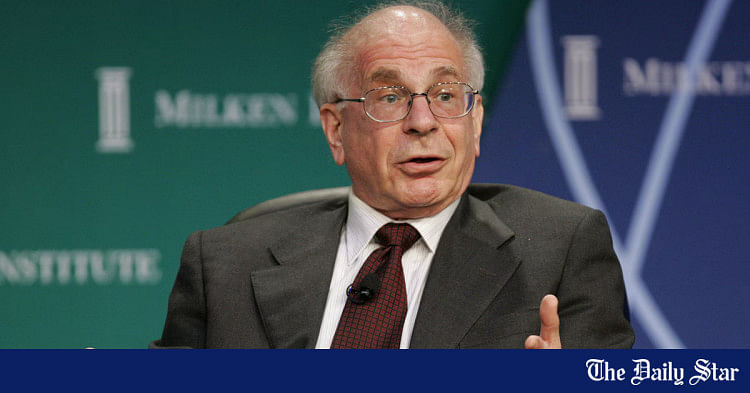
In a recent article from The Daily Star, Abdullah Shibli discusses the influence of Daniel Kahneman, the 'grandfather of behavioural economics,' on policymaking and economic decision-making [7201d273]. Kahneman, who passed away on March 27, was awarded the Nobel Prize in Economics in 2002 and was recognized as one of the most influential economists in the world [7201d273]. Alongside his research partner Amos Tversky, Kahneman challenged the rational decision-making model proposed by Adam Smith by uncovering 'anomalies' in human behavior [7201d273]. They identified departures from rationality, including cognitive biases such as status quo bias, endowment effect, scope sensitivity, and loss aversion [7201d273]. Their experiments also demonstrated the framing effect, validating the concept of cognitive biases in decision-making [7201d273].
The article highlights the relevance of Kahneman's work in the context of economic policymaking in Bangladesh [7201d273]. It points out that policymaking can be challenging due to factors like political shifts and status quo bias [7201d273]. The government has initiated skills training programs, but concerns have been raised about the lack of emphasis on soft skills [7201d273]. Agricultural scientists have also observed the slow adoption of agricultural innovation, which can be attributed to human biases [7201d273]. The article emphasizes that policymaking requires resilience and an understanding of the complexities of human decision-making, as Kahneman himself would say [7201d273].
This new information adds to the existing narrative by shedding light on the specific influence of Daniel Kahneman on policymaking and economic decision-making. It highlights the relevance of his research in challenging traditional models of rational decision-making and uncovering cognitive biases that impact human behavior. The article also provides a real-world example of how these insights are applicable in the context of economic policymaking in Bangladesh, where political shifts and status quo bias can pose challenges. Overall, it underscores the importance of understanding human decision-making processes in policymaking and economic decision-making.